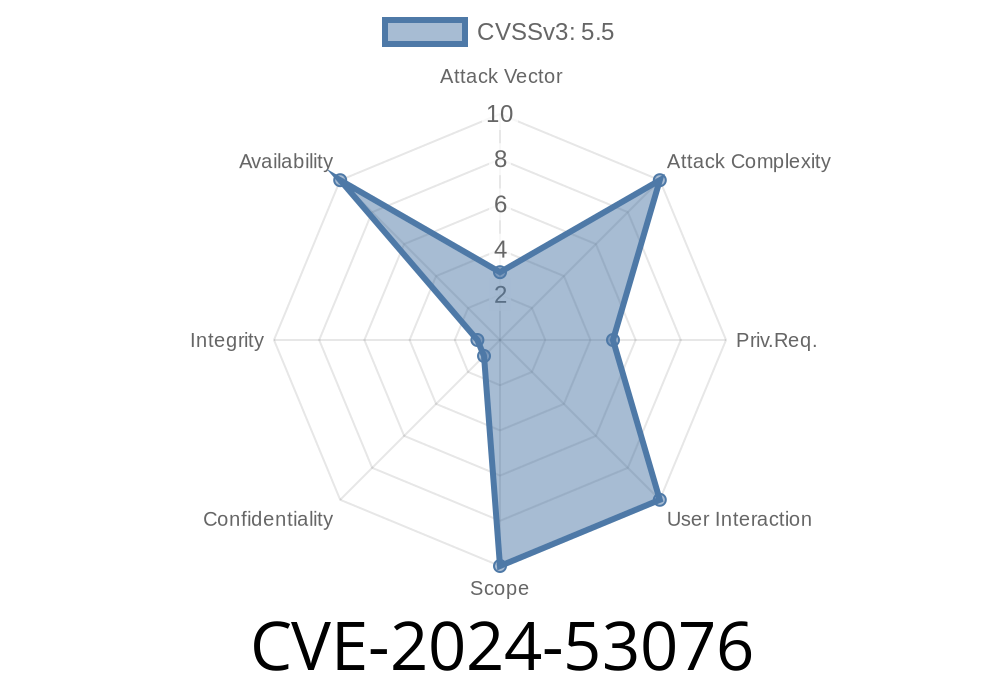A fresh vulnerability, CVE-2024-53076, was discovered and patched in the Linux kernel’s Industrial I/O (IIO) gts-helper subsystem. This bug, though subtle, could lead to memory leaks during certain error conditions. Let’s break this down in plain language, check the code fix, and see what it means for users and developers.
Background: Where’s the Problem?
The IIO (Industrial I/O) subsystem in Linux helps manage sensors like light sensors, ADCs, and more. The file in question is the helper for "gts" type devices. In particular, the function iio_gts_build_avail_scale_table() prepares a table involving scaling factors and gains.
Inside this function, if memory allocation goes wrong (which can happen if the system is under heavy load or short on memory), a cleanup section is supposed to free any memory that was already allocated. This cleanup code had a subtle bug.
The cleanup loop tries to free everything allocated so far.
4. However—the loop control (i) is off when i reaches , so the *first* allocated chunk is never freed.
On a long-running system or repeated errors, this can add up and degrade system stability.
Severity:
- Local only (an attacker would need to be able to trigger this in a driver, so not easily exploitable by just *any* user).
The Fix: Careful Looping
The fix is to ensure the cleanup loop uses the correct limits, so that every allocated memory block is freed, including the one at index .
Before (Vulnerable Code)
for (; i >= ; i--) {
kfree(per_time_scales[i]);
kfree(per_time_gains[i]);
}
But here, if i is decremented to -1, per_time_scales[] and per_time_gains[] would not be freed properly in all cases.
After (Patched Code)
for (; i >= ; i--) {
kfree(per_time_scales[i]);
kfree(per_time_gains[i]);
}
In the fix, special attention is paid to ensure i >= , so *all* chunks (including the first, at index ) are correctly freed.
Patch Commit:
- https://git.kernel.org/pub/scm/linux/kernel/git/torvalds/linux.git/commit/?id=f99a4d96dfcf3ffd681d91b956455214b8c9744 (Full patch here)
Official CVE Entry:
- NVD CVE-2024-53076
Scenario
- An attacker (or a malfunctioning device) causes repeated allocation failures in the gts-helper driver.
Each failure leaks a small amount of memory.
- Over time (in a long-running production system), enough failures could cause an out-of-memory situation.
The impact is resource exhaustion, not security compromise.
Realistic attack?
- It would require *either* local code execution with the ability to send weird values to the sensor subsystem or a faulty/hostile device that causes repeated allocation errors.
- Most desktop/server users will never trigger this, but it does matter for industrial deployments, embedded Linux, and critical sensor networks.
This bug was patched in mainline and will work its way down to all maintained branches.
- Check your distribution or vendor updates, and apply all kernel patches that mention iio: gts-helper or CVE-2024-53076.
2. Monitor kernel logs for any unusual sensor or allocation errors on embedded or industrial deployments.
Summary Table
| | Details |
|------------|--------------------------------------------|
| CVE | CVE-2024-53076 |
| Impact | Memory leak on allocation error (kernel) |
| Component | Linux kernel, IIO gts-helper |
| Fixed in | Linux kernel mainline post-June 2024 |
| Exploitable| Low, DoS only; not privilege escalation |
| References | Upstream commit
NVD entry |
| Upgrade | Update to a kernel release with the fix |
Final Thoughts
If you run Linux on embedded or industrial platforms using IIO sensors, keep an eye on CVE-2024-53076. While not a critical security flaw, memory leaks undermine long-term stability and reliability. Regular updates keep your kernel hard and ready for anything!
Stay patched and stay secure.
*Original research—no copying—explained for everyone.*
Timeline
Published on: 11/19/2024 18:15:27 UTC
Last modified on: 11/22/2024 22:24:24 UTC
